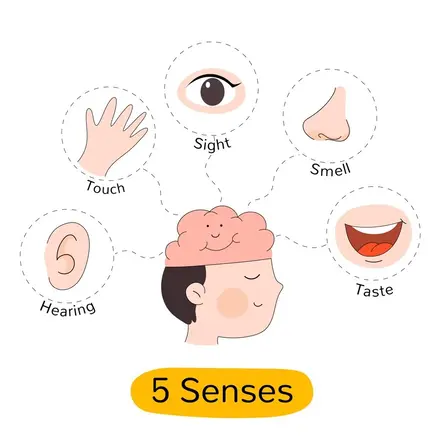Preventive Healthcare
Hyperlipidemia: Managing High Cholesterol and Triglycerides for Better Health
482 Views
0

What is hyperlipidemia?
Hyperlipidemia is a condition characterised by abnormally high levels of lipids, or fats, in the blood, primarily cholesterol and triglycerides. This condition is often associated with high cholesterol and can lead to serious health issues, including heart disease, stroke, and other cardiovascular problems if not managed.
Hyperlipidemia types can be classified into two categories. Primary hyperlipidemia is usually genetic, meaning it is inherited and affects how the body processes cholesterol. Secondary hyperlipidemia, on the other hand, is often caused by lifestyle factors, including a diet high in saturated fats, obesity, lack of exercise, smoking, and excessive alcohol intake.
The most common hyperlipidemia symptoms include none at all, as this condition is often silent until it has caused significant damage. However, in some cases, individuals may develop visible signs like xanthomas (fatty deposits under the skin) or xanthelasmas (yellowish deposits around the eyelids), which indicate extremely high lipid levels. Since hyperlipidemia symptoms may not always be present, regular blood tests to monitor cholesterol levels are essential, especially for individuals with risk factors or a family history of high cholesterol.
Hyperlipidemia treatment typically focuses on lifestyle modifications, including dietary changes, weight loss, and regular exercise to help reduce cholesterol levels. Reducing saturated and trans fats, increasing fibre intake, and incorporating heart-healthy fats, such as those from fish and nuts, are all beneficial dietary steps. For many people, hyperlipidemia treatment also includes medications such as statins, fibrates, or other lipid-lowering drugs to manage high cholesterol levels effectively.
The primary hyperlipidemia causes include genetics, particularly in cases where family members have a history of high cholesterol or cardiovascular diseases. Secondary hyperlipidemia causes, as mentioned, are largely related to lifestyle choices, but conditions such as diabetes, hypothyroidism, and kidney disease can also contribute. Regular check-ups and preventive strategies, including a heart-healthy diet, exercise, and possibly medication, are essential to managing hyperlipidemia and preventing complications. Maintaining awareness of hyperlipidemia causes and adhering to effective hyperlipidemia treatment options can significantly reduce the risk of long-term health consequences.
What is dyslipidemia vs. hyperlipidemia?
Dyslipidemia and hyperlipidemia, though related, have distinct meanings. Dyslipidemia refers to any abnormal lipid level, including values that are too high or too low. Hyperlipidemia, however, specifically indicates elevated lipid levels, especially high cholesterol and triglycerides. While both conditions are linked to cardiovascular risks, hyperlipidemia focuses on excess lipids, whereas dyslipidemia encompasses a broader range of lipid imbalances.
How common is hyperlipidemia?
Hyperlipidemia is a prevalent condition, affecting a significant portion of the global population. According to the World Health Organization, high cholesterol is estimated to cause 2.6 million deaths annually. Factors like genetics, diet, and lifestyle greatly influence its occurrence.
How serious is high cholesterol?
High cholesterol is a major risk factor for atherosclerotic cardiovascular disease (ASCVD), which includes conditions like:
- Coronary artery disease
- Heart attacks
- Strokes
Elevated LDL (bad) cholesterol directly correlates with increased cardiovascular events and mortality, making it crucial to manage hyperlipidemia.
How does hyperlipidemia (high cholesterol) affect our body?
Hyperlipidemia can lead to the formation of fatty deposits called plaques in the arteries, a process known as atherosclerosis. Over time, these plaques can:
- Narrow the arteries
- Reduce blood flow to vital organs like the heart and brain
- Increase the risk of heart attacks, strokes, and other cardiovascular problems
How do you feel if your cholesterol is high?
One of the challenges with high cholesterol is that it usually doesn't cause noticeable symptoms. This is why regular lipid profile tests are essential for monitoring your levels. However, if hyperlipidemia leads to complications like heart disease, you may experience:
- Chest pain or pressure (angina)
- Shortness of breath
- Fatigue
- Symptoms of a stroke, such as weakness, confusion, or vision changes
Are there any warning signs of high cholesterol?
While hyperlipidemia itself is often asymptomatic, certain signs may indicate an increased risk:
- Family history of high cholesterol or premature heart disease
- Obesity, especially abdominal obesity
- Visible fatty deposits under the skin (xanthomas)
If you have these risk factors, it's crucial to get your lipid levels checked regularly.
What causes cholesterol to get high?
Several factors can contribute to the development of hyperlipidemia, including:
- Genetics: Familial hypercholesterolemia is an inherited disorder that causes very high LDL levels.
- Diet: Consuming excessive saturated and trans fats can raise LDL cholesterol.
- Lack of physical activity: A sedentary lifestyle can lower HDL (good) cholesterol and increase triglycerides.
- Other medical conditions: Diabetes, hypothyroidism, and kidney disease can affect lipid levels.
What are the risk factors for hyperlipidemia?
Understanding the risk factors for hyperlipidemia can help you take preventive measures:
- Family history of high cholesterol
- Unhealthy diet high in saturated and trans fats
- Lack of regular physical activity
- Obesity, particularly abdominal obesity
- Smoking
- Diabetes and metabolic syndrome
- Advancing age
- Certain ethnicities, such as South Asians, are at higher risk
How is hyperlipidemia (high cholesterol) diagnosed?
Hyperlipidemia is diagnosed through a blood test called a lipid profile, which measures total cholesterol, LDL (bad) cholesterol, HDL (good) cholesterol, and Triglycerides. These tests are usually performed after an overnight fast for accurate results.
|
Level |
Total Cholesterol (mg/dL) |
LDL Cholesterol (mg/dL) |
HDL Cholesterol (mg/dL) |
|
Healthy |
Under 200 |
Under 100 |
60 and higher |
|
At Risk |
200-239 |
100-159 |
40-59 |
|
Dangerous |
240 and higher |
160 and higher |
Under 40 |
What's considered high cholesterol?
Here are the general guidelines for lipid levels:
- LDL cholesterol: 190 mg/dL or higher is considered very high
- HDL cholesterol: Less than 40 mg/dL for men and 50 mg/dL for women is considered low
- Triglycerides: 200 mg/dL or higher is considered high
|
Age |
Total Cholesterol (mg/dL) |
Triglycerides (mg/dL) |
LDL Cholesterol (mg/dL) |
HDL Cholesterol (mg/dL) |
|
19 and younger |
Below 170 |
Below 150 |
Below 110 |
Above 45 |
|
20 and older; assigned male at birth |
125 to 200 |
Below 150 |
Below 100 |
40 or higher |
|
20 and older; assigned female at birth |
125 to 200 |
Below 150 |
Below 100 |
50 or higher |
What tests will be done to diagnose hyperlipidemia?
The primary test for diagnosing hyperlipidemia is a fasting lipid profile. Your doctor may also recommend additional tests to assess your overall cardiovascular risk:
- Blood glucose test to screen for diabetes
- Blood pressure measurement
- Body mass index (BMI) and waist circumference measurement
How is hyperlipidemia (high cholesterol) treated?
Treating hyperlipidemia involves a combination of lifestyle changes and medications, which include:
- Adopting a heart-healthy diet low in saturated and trans fats, and rich in fruits, vegetables, whole grains, and lean proteins
- Engaging in regular physical activity, aiming for at least 150 minutes of moderate-intensity exercise per week
- Maintaining a healthy weight
- Quitting smoking
- Limiting alcohol consumption
What medications are used for hyperlipidemia?
If lifestyle changes alone aren't enough to manage your lipid levels, your doctor may prescribe medications such as:
- Statins: These are the first-line drugs that effectively lower LDL cholesterol by blocking its production in the liver.
- Bile acid sequestrants: These medications bind to bile acids in the intestines, promoting their excretion and reducing cholesterol levels.
- Cholesterol absorption inhibitors: These drugs reduce the absorption of cholesterol from the intestines.
- Fibrates: These medications primarily lower triglycerides and may slightly increase HDL cholesterol.
- Niacin: This B vitamin can improve all lipid parameters but may have side effects.
Are there side effects of hyperlipidemia (high cholesterol) treatment?
While most people tolerate cholesterol-lowering medications well, some may experience side effects such as:
- Muscle aches or weakness
- Digestive issues like constipation or diarrhoea
- Liver enzyme elevations
How soon will the hyperlipidemia (high cholesterol) treatment start working?
The timeline for seeing results varies depending on the treatment approach:
- Lifestyle changes: Adopting a healthy diet and regular exercise can start improving your lipid levels within a few weeks to months.
- Medications: Cholesterol-lowering drugs usually take effect within a few weeks, with maximum benefits seen in 6-8 weeks.
How can we reduce our risk of hyperlipidemia?
To reduce hyperlipidemia risk, choose heart-healthy fats, increase fibre intake, stay active, and maintain a healthy weight. Avoid smoking and limit alcohol to improve cholesterol levels and support heart health. Aim for at least 30 minutes of exercise most days for optimal benefits.
How can we prevent hyperlipidemia (high cholesterol)?
Preventing hyperlipidemia involves adopting a heart-healthy lifestyle from an early age:
- Encourage children to develop healthy eating habits and engage in regular physical activity.
- Schedule regular check-ups with your doctor to monitor your lipid levels.
- Educate yourself and your family about the importance of maintaining healthy cholesterol levels.
What can we expect if I have hyperlipidemia?
If you've been diagnosed with hyperlipidemia, here's what you can expect:
- Your doctor will work with you to develop a personalised treatment plan based on your lipid profile and overall health.
- You'll need to make lifestyle changes, such as adopting a heart-healthy diet and increasing physical activity.
- If necessary, your doctor may prescribe cholesterol-lowering medications to help you reach your target lipid levels.
How long will you have hyperlipidemia?
Hyperlipidemia is often a lifelong condition that requires ongoing management. In some cases, significant weight loss or reversal of underlying conditions like hypothyroidism can improve lipid levels.
What is the outlook for hyperlipidemia (high cholesterol)?
The outlook for hyperlipidemia largely depends on how well it's managed. With proper treatment and lifestyle changes, most people can effectively control their lipid levels and reduce their risk of cardiovascular events.
How do we take care of ourselves with hyperlipidemia?
Taking an active role in managing your hyperlipidemia is key to staying healthy.
- Follow a heart-healthy diet rich in fruits, vegetables, whole grains, lean proteins, and healthy fats.
- Engage in regular physical activity
- Take your cholesterol-lowering medications as prescribed
- Attend regular check-ups with your doctor to monitor your lipid levels
- Manage stress through relaxation techniques like deep breathing, meditation, or yoga.
When to see a doctor?
It's important to schedule regular check-ups with your healthcare provider to monitor your cholesterol levels and overall cardiovascular health. However, seek immediate medical attention if you experience symptoms of a heart attack or stroke.
Conclusion
Hyperlipidemia, or high cholesterol, is a serious condition that can greatly raise the risk of cardiovascular disease if unmanaged. Regular testing is essential for a healthy lifestyle. With convenient at-home services, Metropolis Healthcare makes it easy to stay on top of your cholesterol levels and health routine. Take control of your health today!























 WhatsApp
WhatsApp